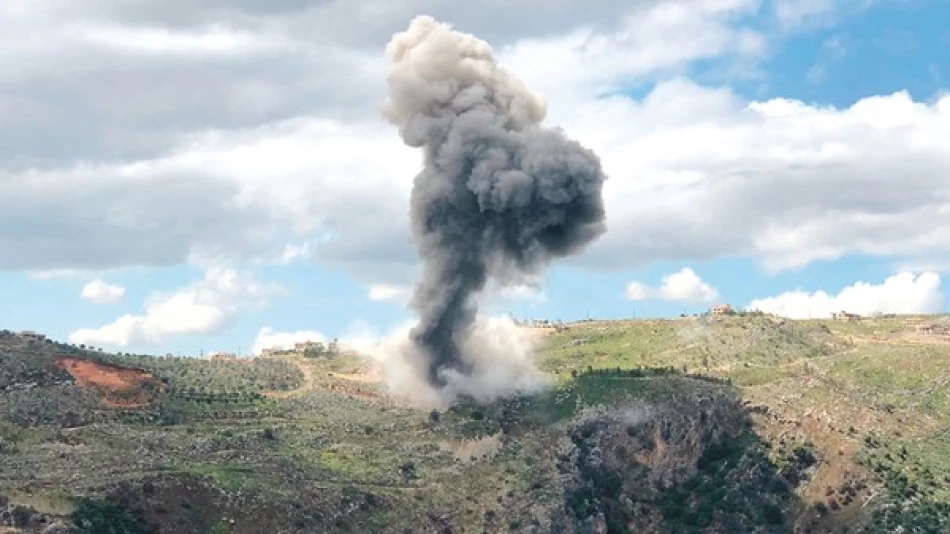
Deadly Israeli Airstrikes Claim 12 Lives in Lebanon: Tragedy Unfolds Amid Regional Tensions
Israel Strikes Lebanon Despite US Ceasefire, Killing 12 in Deadliest Attack Since November Deal
Israeli airstrikes killed 12 people in eastern Lebanon, including five Hezbollah members, marking the deadliest escalation since the US-brokered ceasefire agreement in November. The strikes targeted training camps and weapons storage facilities in the Bekaa Valley, signaling Israel's growing impatience with what it perceives as Hezbollah's rebuilding efforts and Lebanon's failure to enforce the truce terms.
Ceasefire Under Strain as Israel Sends "Clear Message"
The airstrikes represent the most significant violation of the November ceasefire that was supposed to end months of cross-border fighting. Among the casualties, seven were Syrian nationals, according to Bekaa Governor Bashir Khodr, highlighting the complex regional dimensions of the conflict.
Israeli Defense Minister Israel Katz framed the operation as both a warning and a statement of intent. "The strikes sent a clear message to Hezbollah," he said, accusing the group of planning to rebuild its military capabilities. Katz emphasized that Israel would respond with "maximum force" to any attempts by Hezbollah to reconstitute its arsenal.
Lebanon Government Under Pressure
Significantly, Katz also directed his message toward the Lebanese government, which he said bears responsibility for maintaining the ceasefire agreement. This dual targeting of both Hezbollah and Lebanese authorities reflects Israel's strategy of holding the state accountable for non-state actors operating within its borders—a approach that has historically proven problematic given Lebanon's limited control over Hezbollah-dominated areas.
US Proposes Four-Month Disarmament Timeline
The timing of the strikes coincides with a new American diplomatic initiative. The United States has reportedly presented the Lebanese government with a proposal calling for Hezbollah's disarmament within four months in exchange for Israel halting its aerial campaigns.
This timeline appears ambitious given the political realities in Lebanon, where Hezbollah operates as both a military organization and a major political party with significant parliamentary representation. Previous international efforts to disarm Hezbollah, including UN Security Council Resolution 1701 from 2006, have largely failed to achieve meaningful results.
Regional Implications and Market Considerations
The escalation threatens to destabilize the broader Levantine region at a time when Middle Eastern tensions are already elevated. For investors and regional markets, the breakdown of the ceasefire raises concerns about potential spillover effects, particularly given Lebanon's ongoing economic crisis and the presence of Syrian refugees in the targeted area.
The involvement of Syrian casualties also risks drawing Damascus and its allies into the conflict, potentially expanding the scope beyond the Israel-Lebanon border. This mirrors patterns seen in previous Middle Eastern conflicts where localized disputes have gradually drawn in regional powers.
Testing American Mediation Credibility
The strikes also test the effectiveness of US diplomatic mediation in the region. The November ceasefire was viewed as a rare success for American diplomacy, but the current escalation suggests that without concrete enforcement mechanisms, such agreements remain fragile.
The four-month disarmament proposal appears to be Washington's attempt to provide a structured path forward, but its success will largely depend on whether the Lebanese government can exert authority over Hezbollah—something that has proven elusive for decades.
Most Viewed News

 Layla Al Mansoori
Layla Al Mansoori






